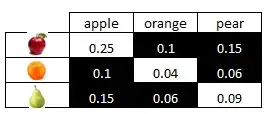I have read of your linked meta post, and it is an interesting situation. If I understand the issue correctly, there has been a proposal to create a tag specific to this particular controversy (such that all posts pertaining to the controversy would be easily identifiable together), and that proposal has been rejected. Instead, you have identified a number of different tags that pertain to certain aspects of the controversy (e.g., moderators, community, etiquette, code-of-conduct, etc.), and those tags have been used inconsistently on posts relating to the controversy.
Notwithstanding the rejection of the proposal for a specific tag for this controversy, I see no reason, in principle, that would prevent you from going through all the posts that might potentially be related to the controversy (e.g., all posts in the relevant time period with any of the listed tags) and categorising if they are or are not related to that controversy, according to some set criteria. This is essentially the same exercise you would do if you were re-tagging the posts with a new tag, only you don't actually get to re-tag them, since the proposal for this was rejected.
Now, essentially, this is an exercise in "qualitative data analysis", where you take a qualitative variable (a textual post) and you transform that into a binary variable (or perhaps a broader categorical variable) to identify posts that meet your chosen criteria for being "precipitated by the Monica Cellio controversy". Your specific question asks, "[a]re there certain standard common ways to categorize this sort of data ... ?" The broad answer is yes, and they are contained in the literature on qualitative data analysis (specifically the subject of categorising qualitative data). The literature on this subject is quite large, so I will not try to offer a summary here. In any case, yours seems like a fairly simple problem, insofar as it is likely to be quite clear (in most cases) whether a post is precipitated by the Monica Cellio controversy or not.
Assuming you are able to categorise the posts in this period as either "precipitated by the Monica Cellio controversy", or not, it would then be fairly simple to quantify the extent to which the observed spike in traffic is attributable to these posts, and answers on these posts. I suspect that the underlying qualitative analysis would be fairly straight-forward, but it would be time-consuming, and a lot of work.
